XKCD: A Crossword Puzzle
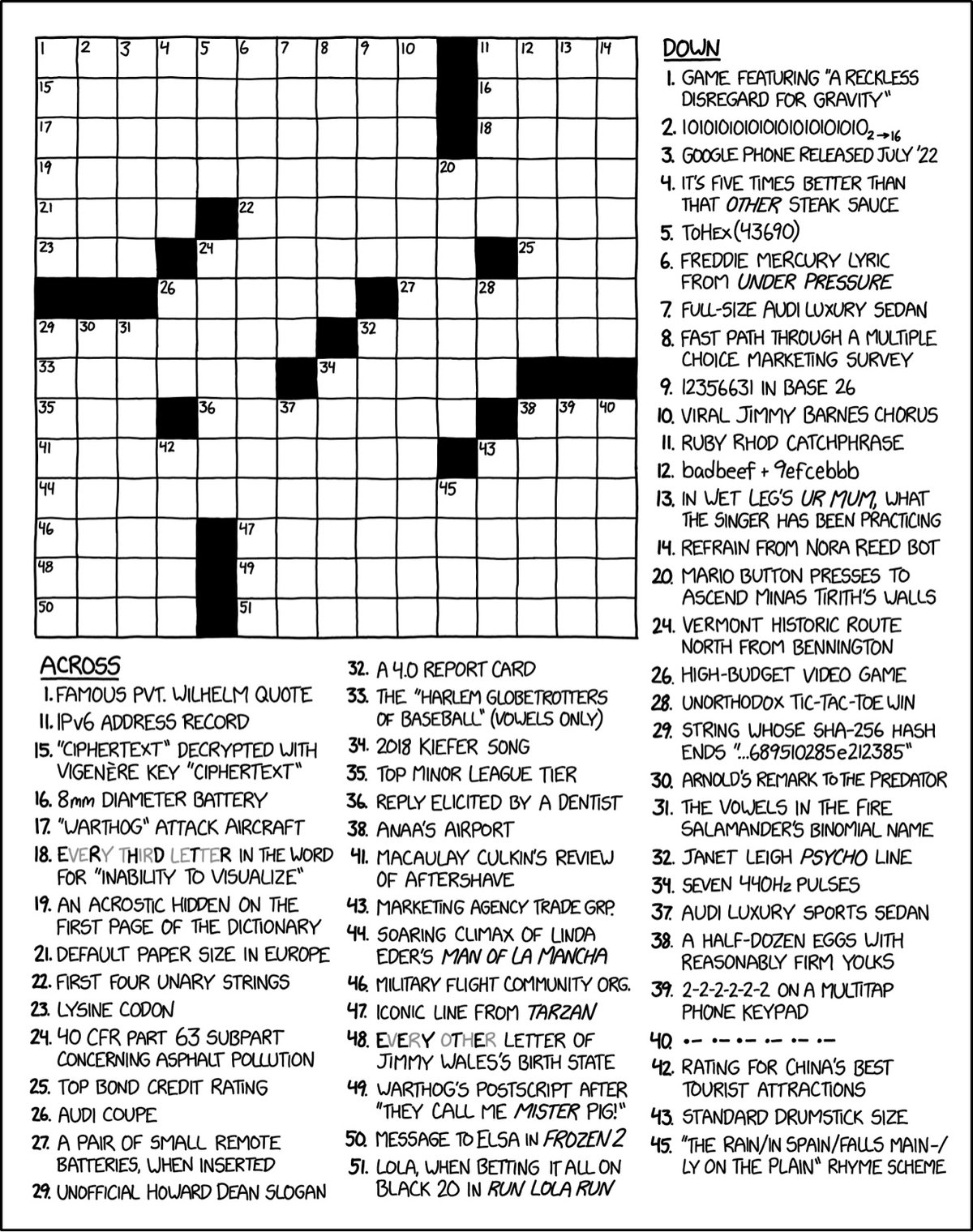
Although I am slightly disappointed this isn’t a “real” crossword puzzle, I do admire Randall Munroe’s commitment to the bit. And then there’s the gray letters…



This site is made possible by member support. 💞
Big thanks to Arcustech for hosting the site and offering amazing tech support.
When you buy through links on kottke.org, I may earn an affiliate commission. Thanks for supporting the site!
kottke.org. home of fine hypertext products since 1998.

Although I am slightly disappointed this isn’t a “real” crossword puzzle, I do admire Randall Munroe’s commitment to the bit. And then there’s the gray letters…
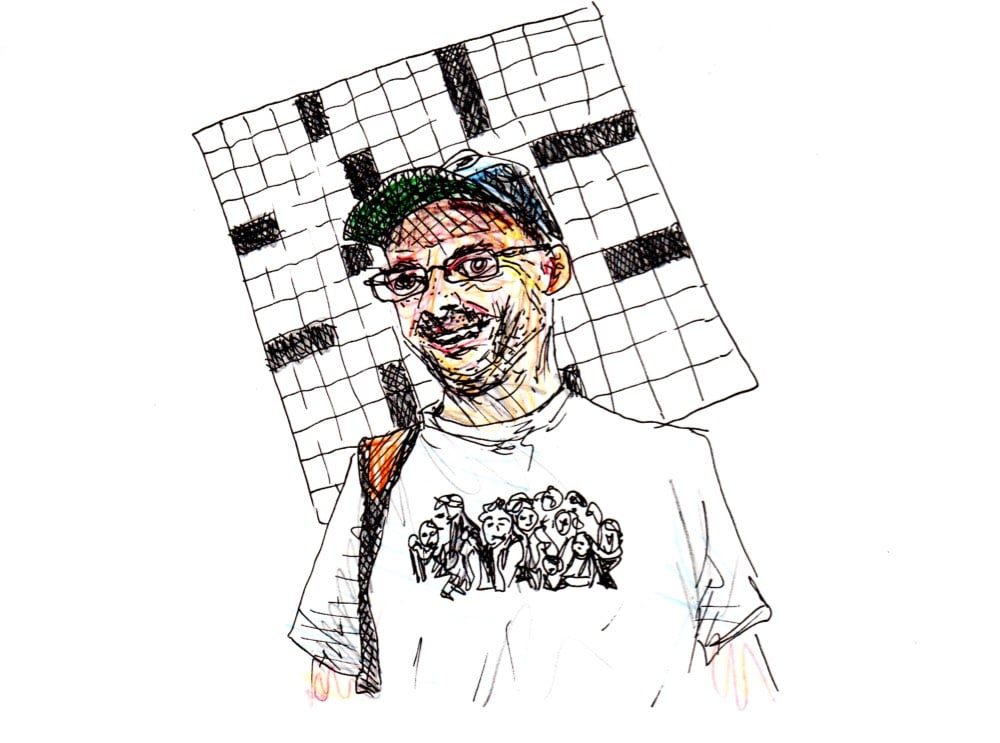
Edith here. For the latest installment of my newish illustrated column, I spoke with Rex Parker, a.k.a. Michael Sharp, of the beloved crossword puzzle blog Rex Parker Does the NYT Crossword Puzzle. (I started following relatively recently but now read it daily, leaving it perpetually open on my phone.) Sharp also teaches English Literature at Binghamton University, runs a vintage paperback blog called Pop Sensation, and tweets about The Lamps of Film Noir at The Lamps of Film Noir.
Rex, have you read (watched, listened to, or otherwise experienced) anything good recently?
Sure. Lots of stuff. My best friend and I decided to read all of Proust this year. We’re way behind already, but I have read Swann’s Way, the first of the seven volumes, and it’s exquisite. And hilarious. I did not expect Proust to be hilarious.
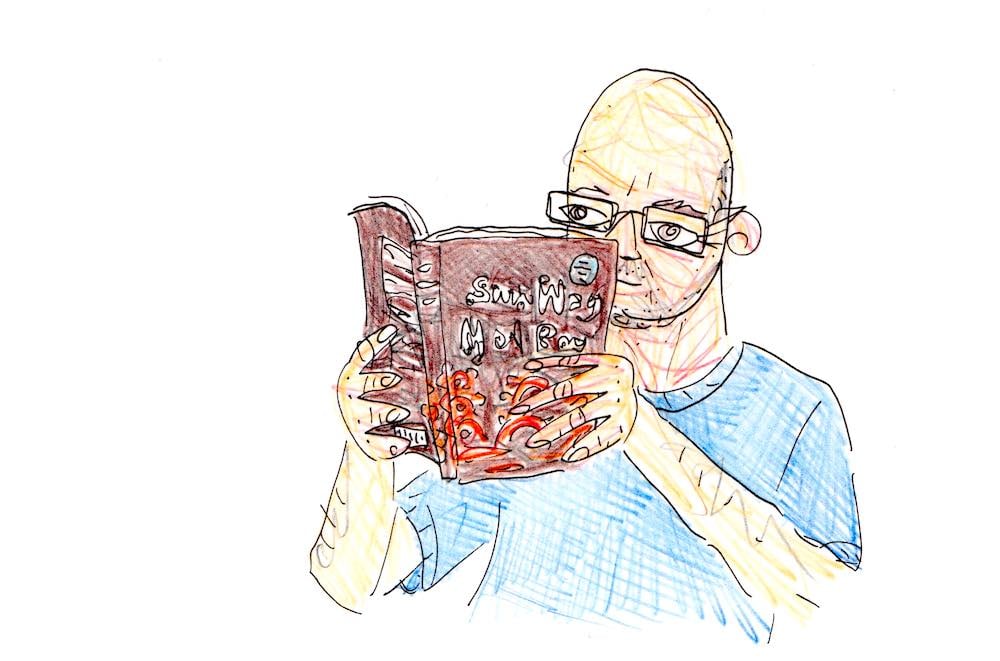
What’s something you’ve read or seen that changed your life, even in a small way?
I was buying something at my college bookstore in ’90 or ’91 and there was this amazing point-of-purchase display for a a new line of crime fiction from Vintage called “Black Lizard.” The display was a cardboard standee with this set of amazing-looking novels housed inside, covers facing out — black-and-white stills (evoking midcentury B movies) with bright slashes of color across them that featured the authors and titles. I’d never heard of any of them, but there were blurbs from people like Stanley Kubrick on them. They were so beautiful, so striking … they struck some chord in me that I didn’t know was there. I would later recognized this chord as “Noir.” I bought two of those books on the spot: Pop. 1280 by Jim Thompson and The Burnt Orange Heresy by Charles Willeford. I read them both immediately, in two gulps, faster than I’d ever read anything (I’m a slow reader).
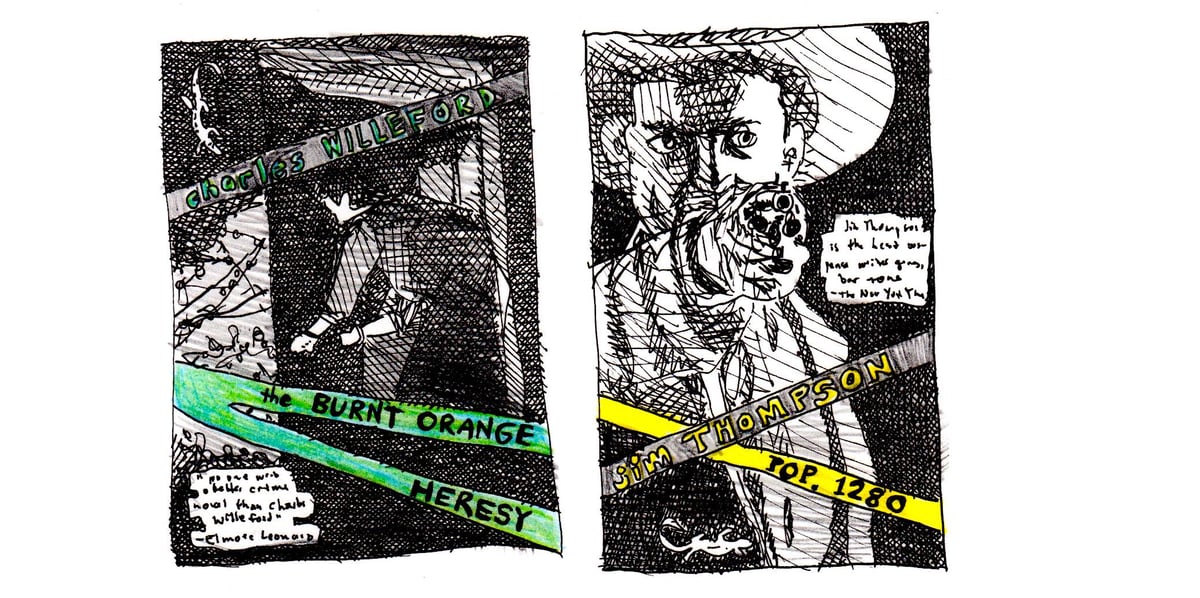
Five years later, the Robert Polito biography of Jim Thompson, Savage Art, came out and was a big splash. *That* book changed my life — it featured a photo spread of all Thompson’s paperback originals, the 25-cent pocket books with lurid covers and taglines. I was mesmerized. I knew I couldn’t afford Thompson originals, but at some point, I thought, “Well, there must be lots of other paperbacks out there from this same era, with this same look, that I *can* afford.” And I marched right into downtown Ann Arbor, to the first used bookstore I came to, and started my vintage paperback collection right then and there (a collection that’s at about 3,000 books at the moment). The first one ever bought was called Louisville Saturday, which I wrote about here.
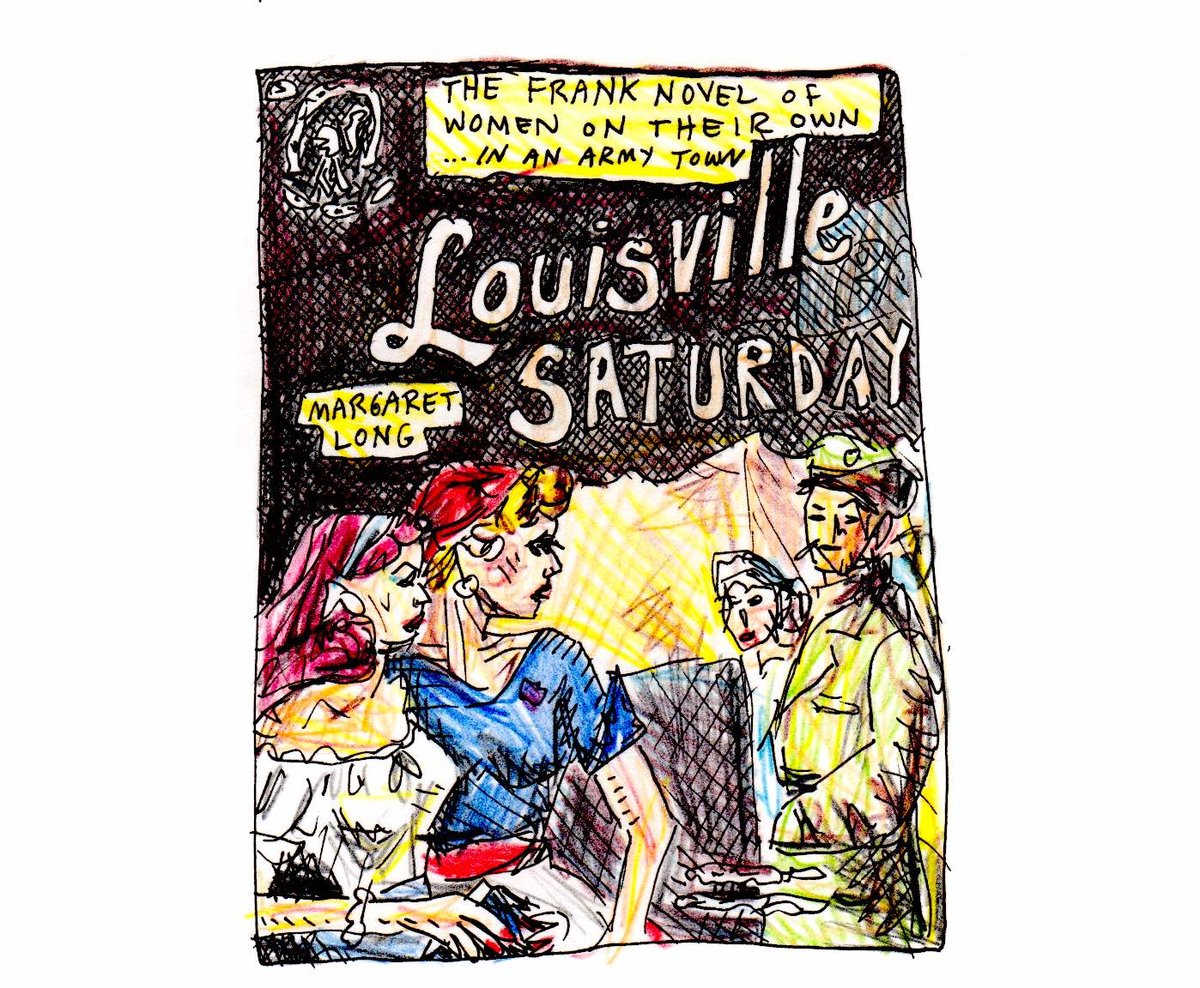
Do you subscribe to anything you don’t read?
Of course. Mostly Substacks I *want* to read but just don’t seem to get around to. Maybe this summer? (Maybe not.)
Read anything you don’t subscribe to? Like, are there paywalls you’re always skirting?
I don’t skirt paywalls. As someone who relies on his own readers for a good part of his income, I believe in paying for the media you consume.
Do you have a favorite newsletter?
Vince Keenan, former editor-in-chief of Noir City, has a noir-themed newsletter I like.
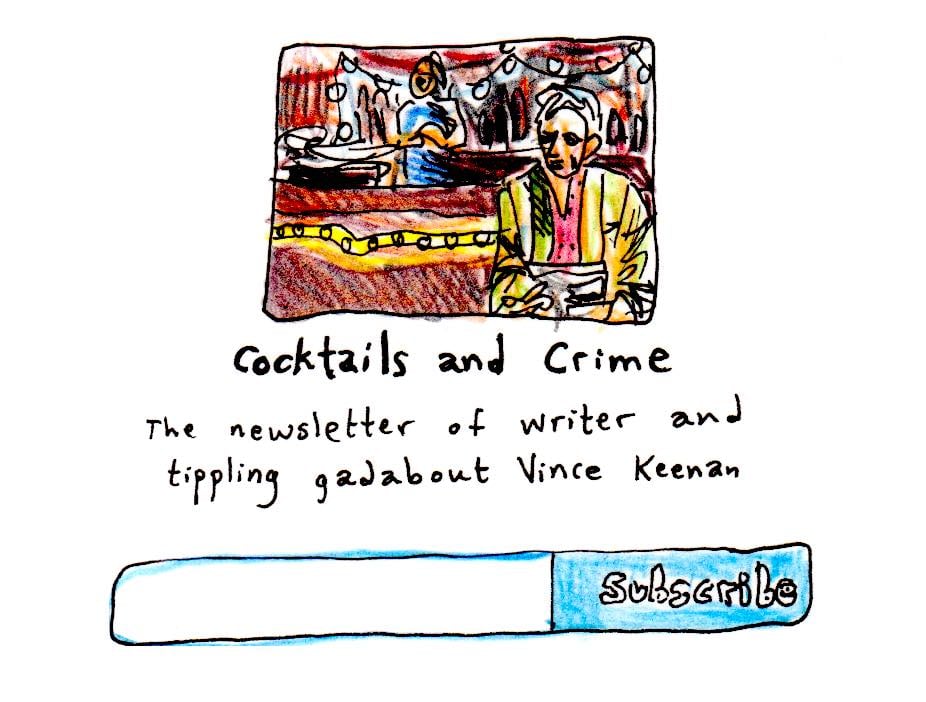
Scott Hines’s Action Cookbook Newsletter is fun. Those are both newsletters with regular cocktail content, which keeps me coming back.
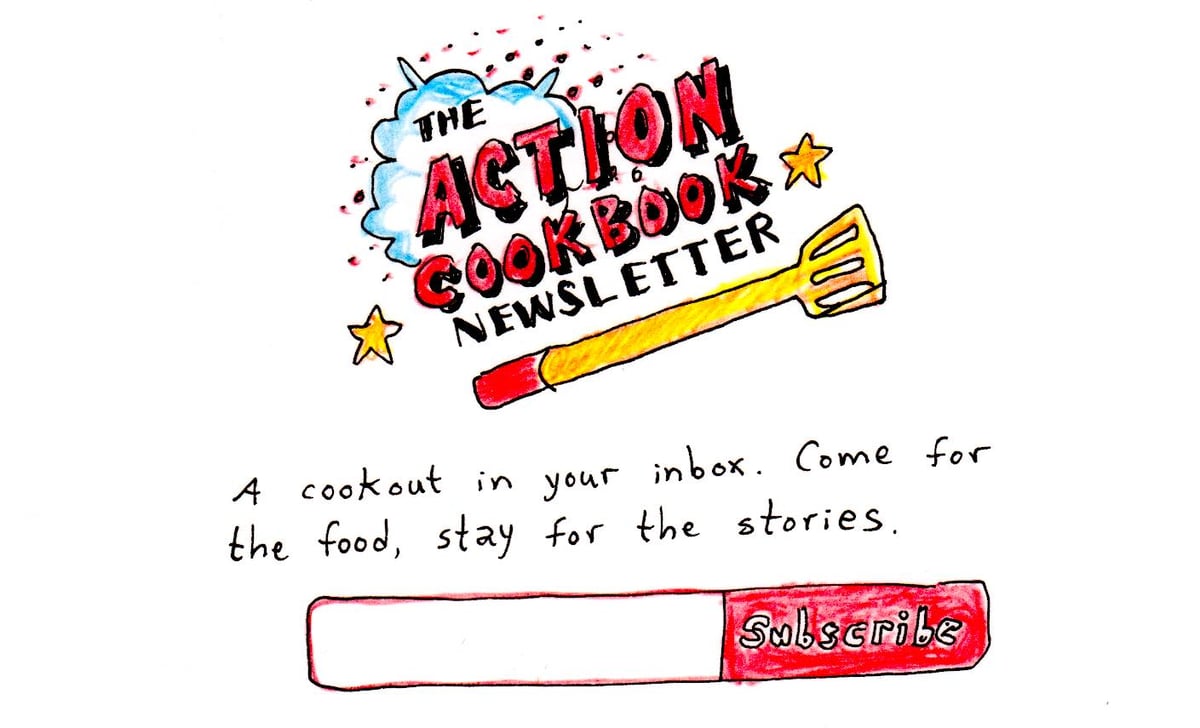
Have you ever lied about reading or watching something? Or felt tempted to lie about it?
The great thing about getting old is that I do not give a fuck about whether anyone thinks I’m well read or up on current shows. So no, no lying, as a rule.
Are there any cultural moments you currently think about unusually often? A song lyric, a moment from a TV show, or anything like that?
There are thousands. I don’t know how to pick one. If I can call the first decade of “The Simpsons” one cultural moment, yes. That show rewired my brain. It was the best thing on the air by light years. I still can’t believe it was real, let alone (somehow) still on the air thirty+ years later. So much about the way I write, think, teach, etc, comes from being immersed in that show for years and years. Not just direct quotes, but my whole sense of humor, my sense of timing. So many great, great, funny writers and performers were at the core of that show, from Conan to Albert Brooks to Phil fucking Hartman. And it was a show that didn’t treat women horribly. You could feel the affection that show had for Marge, and especially Lisa, who is an icon. My personal hero. That first decade was truly miraculous to me. The only thing that compares in live-action shows, for me, is “Freaks & Geeks,” which lasted just one glorious season. Again, I can’t believe something so perfect ever even made it to air.
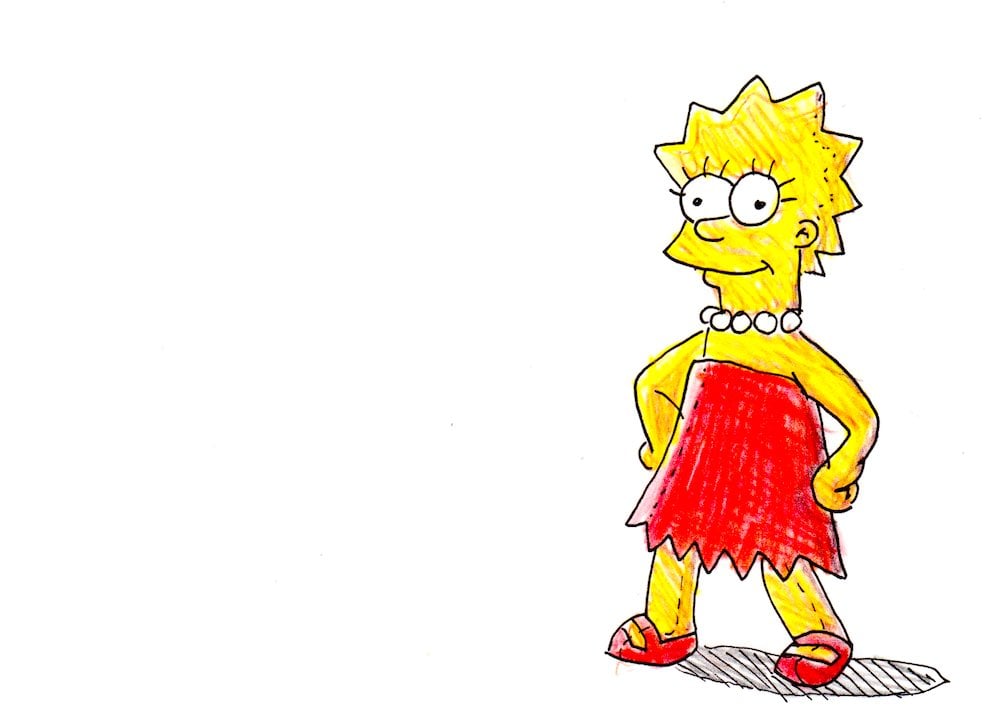
What were you really into when you were 12?
Sadness. Donkey Kong. And The Motels — I listened to the album “All Four One” over and over and over and over. Martha Davis was my first celebrity crush. No, second. Olivia Newton-John was first.
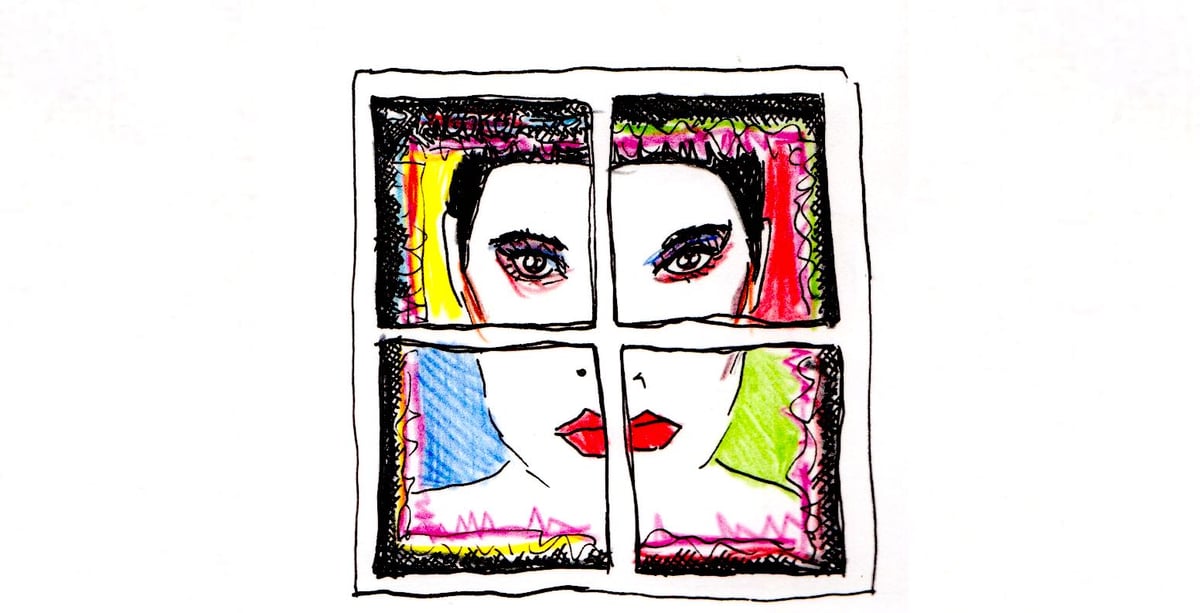
Is there a book/movie/whatever you’d like to experience again for the first time?
Not really. Maybe The Long Goodbye, which is my favorite novel, but I actually enjoy rereading it every year. I enjoy knowing it so well. I enjoy meeting sentences and paragraphs again like they’re old friends. You can’t get that on a first reading, obviously.
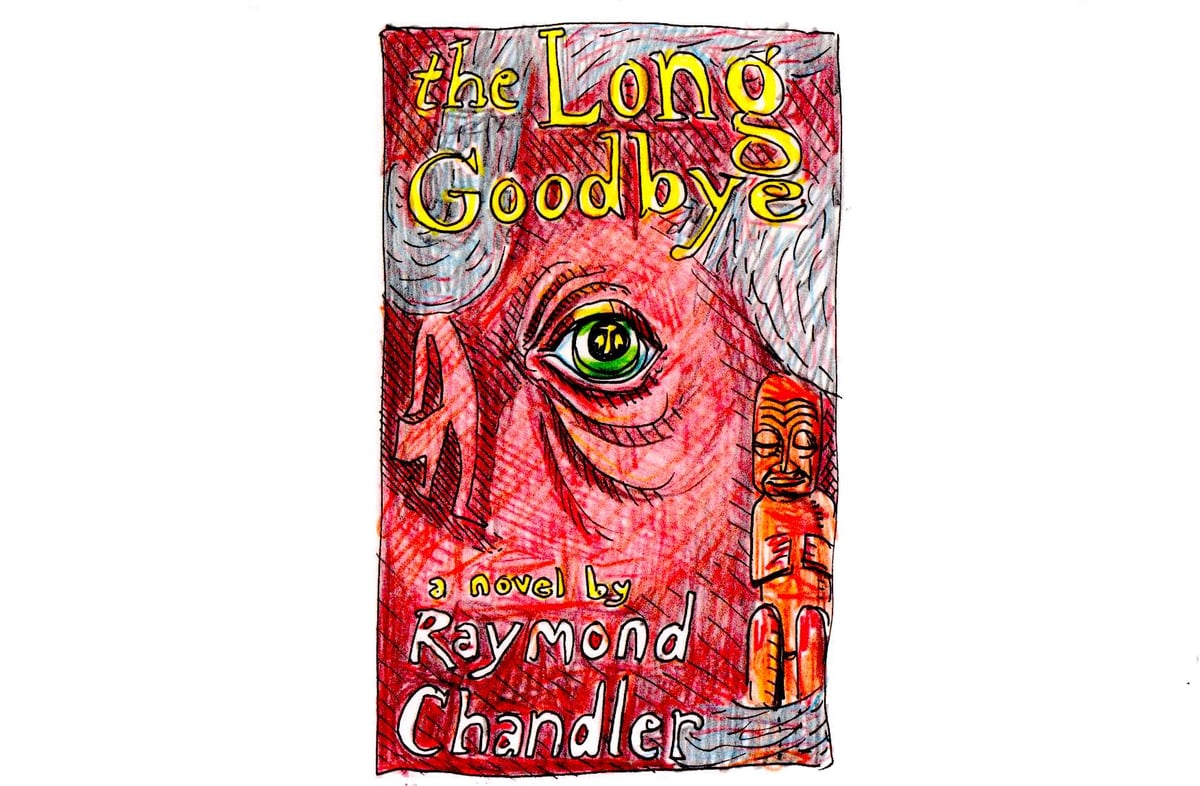
Is there something you wish your phone could do that it doesn’t?
Go away.
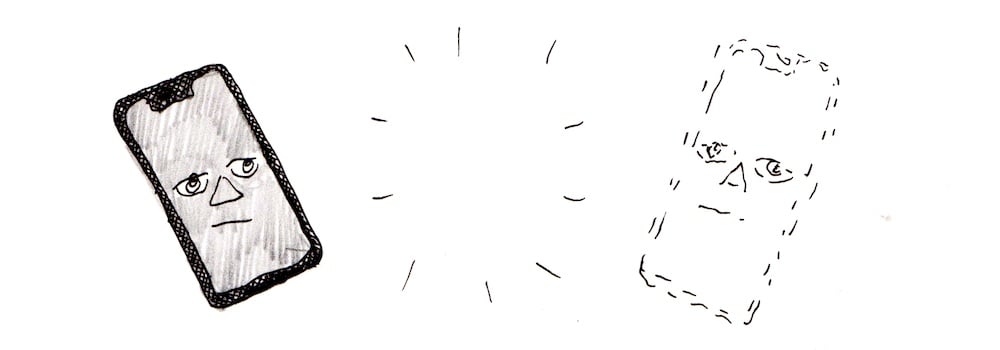
Please tell me something silly that you love.
My cats. They have such weird habits. Like, Alfie hates when you make the bed. He will not let you. Clean sheets are his enemy. No one knows why. Both cats have figured out that if you sit at the bottom of the stairs, you can look in the mirror on the closet door there and see the sliding glass door in the kitchen that opens onto the back deck (and vice versa). Sometimes I find the cats in these completely different parts of the house, one in the kitchen, the other at the bottom of the stairs, just staring at each other in that mirror. I’m like “buddy, you can just go in the next room and see Ida in person,” but no. Mirror staring. Cats are ridiculous, which is why they’re great.
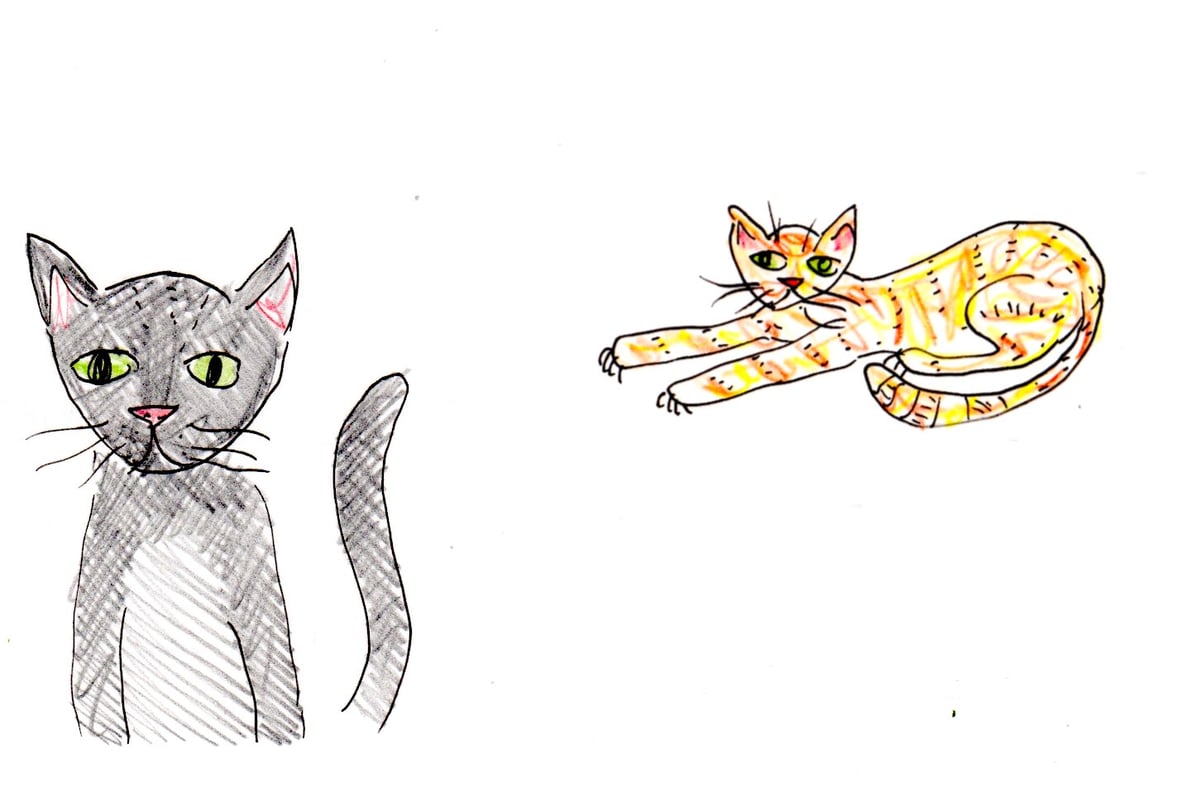
Thanks, Rex! Rex’s crossword blog can be found here. And past Drawing Media installments can be found here.
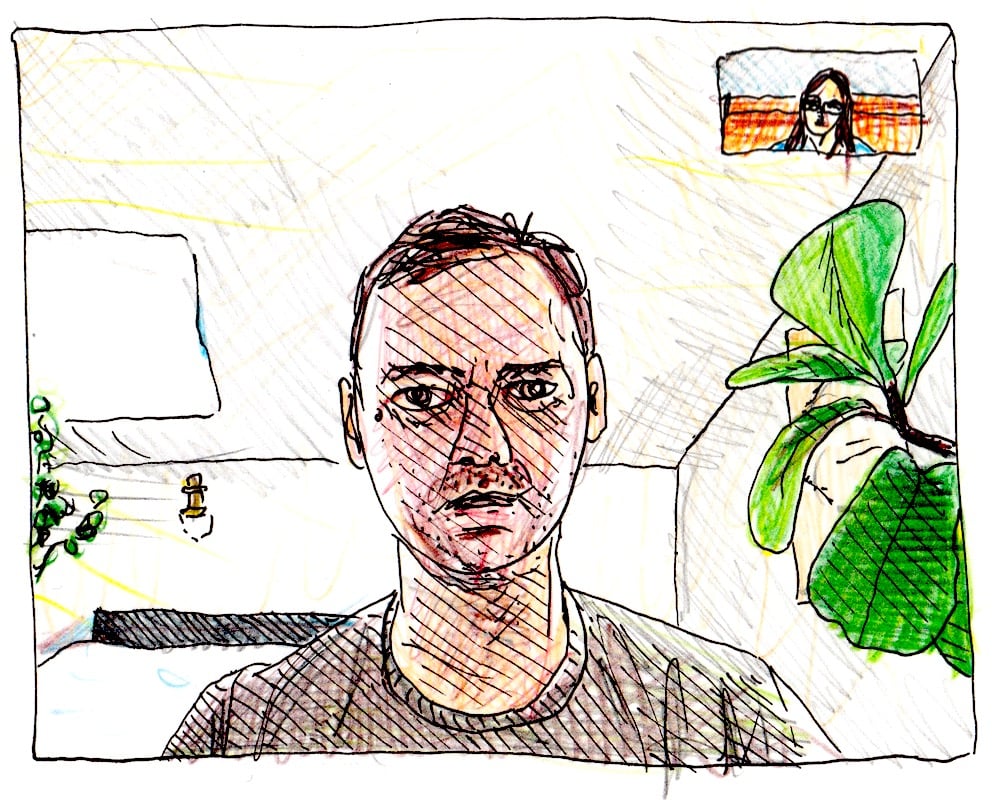
Hi, Edith here. This is the first in an interview series in which I talk to people about their media diets and habits. Jason seemed like a good person to start with as we figure out the format, although honestly his actual Media Diet series is more thorough. Look for the next installment in a few weeks!
So, have you seen or read anything good recently?
I saw Dune Two on opening weekend. And I went by myself, which I like to do. There are no IMAX screens in Vermont, but there’s a theater about 45 minutes from me with a screen called the T-Rex. It’s not quite IMAX, but it’s not bad either.
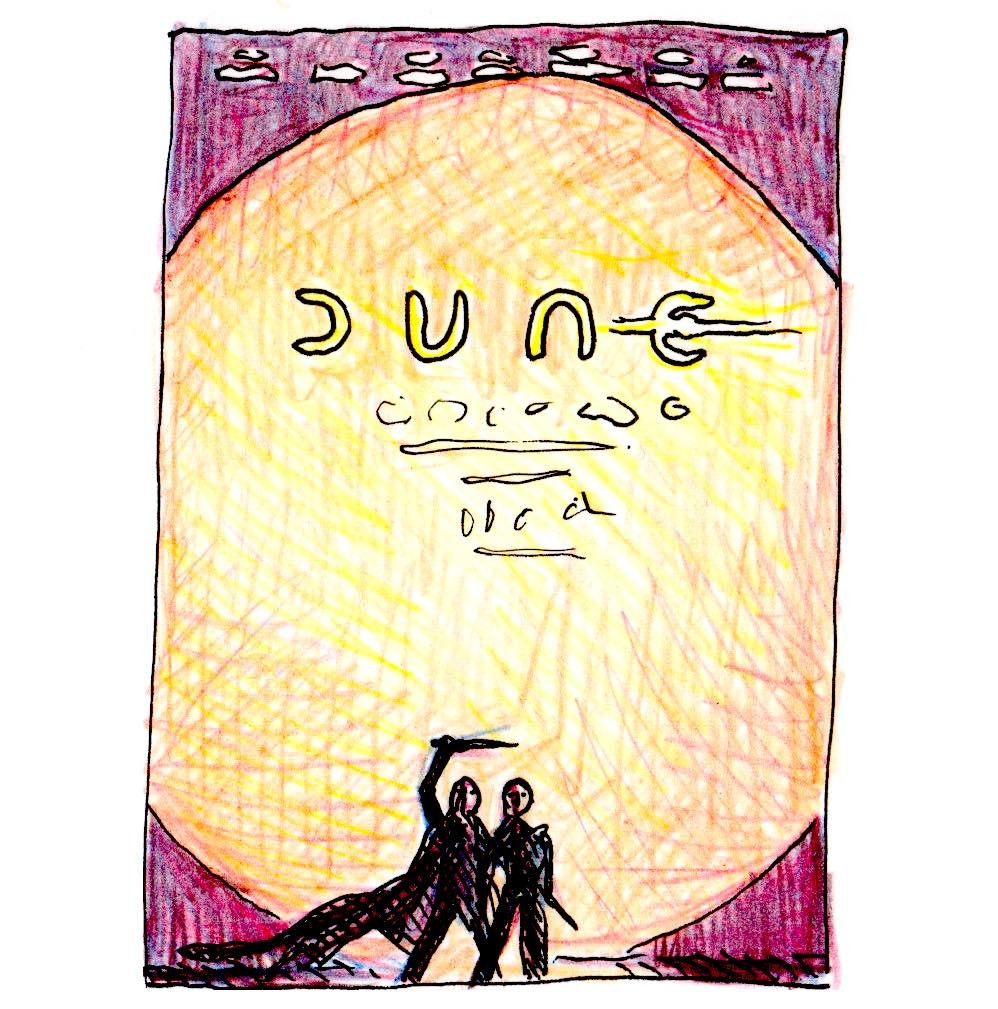
How was it?
Great. Better than the first one.
And it was definitely a movie that you want to see on the big screen. Like you could feel the bass, and at one particular moment it felt like the whole theater was vibrating.
I’m sure you’ve read Dune. Have you read it many times?
I have not read Dune, ever.
Really?!
I’m not sure the movie necessarily makes me want to read Dune, either, which is surprising, because usually when I see a movie based on a book, I’ll be like, “Oh I need to read that.” Like when I saw Oppenheimer, later I read the book it’s based on, which is this 600-page biography of Robert Oppenheimer. And it was good, but I think the movie was better.
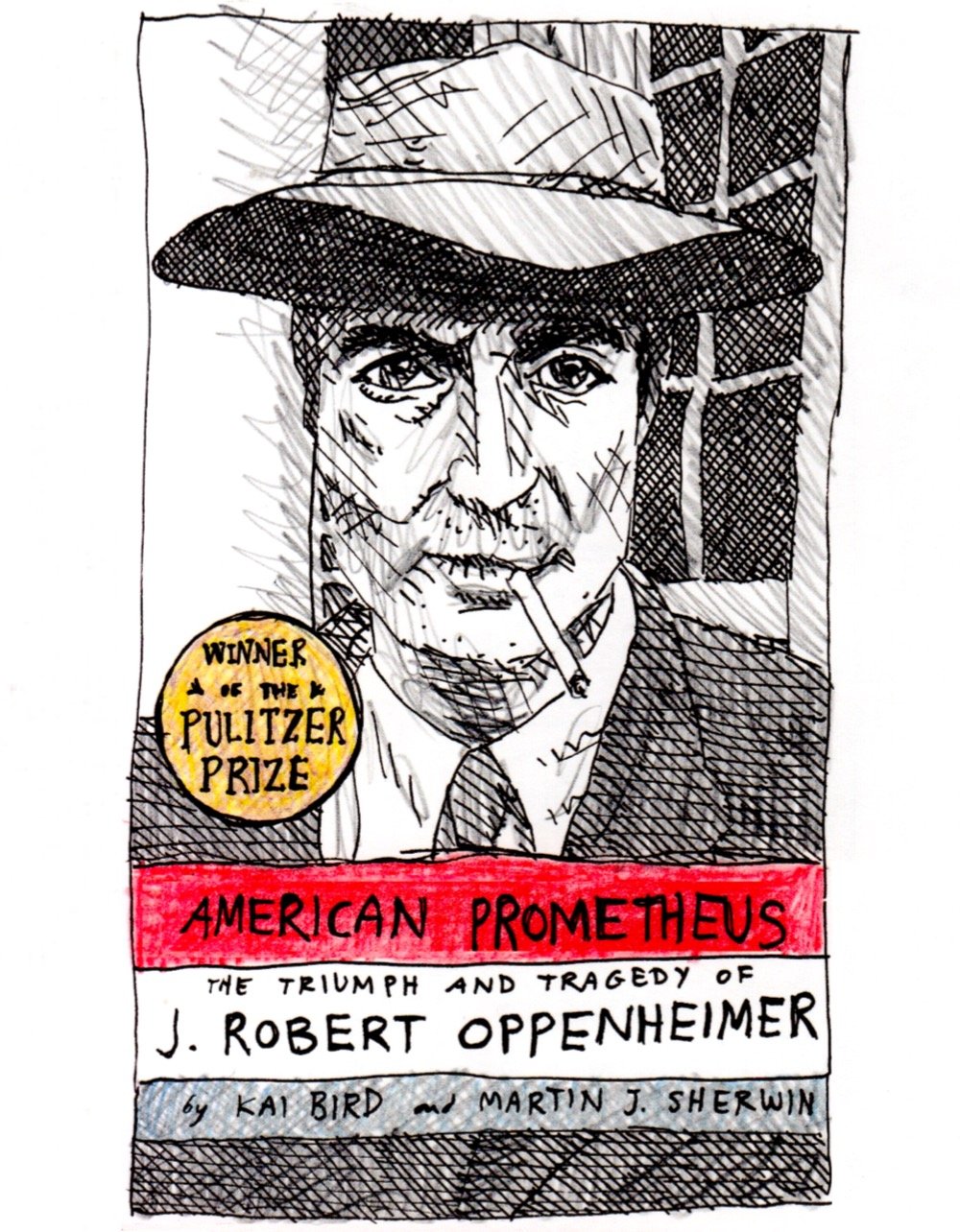
You mentioned the other day that you haven’t been enjoying, or even reading, many books recently. Is that true?
Pretty much? For the last couple months, I’ve been working a lot, and that means spending a lot of time on a device – my computer, my phone. And generally I don’t want to read after I’ve been working a lot. TV is much more something I turn to. Also video games. Like I play Fortnite, which is something I started doing with my kids, but now I play more than they do, which is weird.
And so you’re playing against other strangers on the Internet?
Exactly.
Are you good?
I don’t think so. But I’ve gotten a lot better.
And I know you play some of the NY Times games too.
I do the crossword almost exclusively with a friend over FaceTime. She shares her screen, and we solve them together.
I wasn’t a crossword puzzle person beforehand – and I kind of hate Scrabble because at a certain level it’s all about strategy and memorization, which is boring to me. I felt similarly about crossword puzzles, but then she and I started doing them, and I was like, “Oh this is actually pretty fun,” and now we do maybe two or three a week.
And I don’t do Wordle, but I do play the Spelling Bee and Connections. And I’ll do the little mini crosswords on my phone. But a lot of that is just procrastinating about getting out of bed in the morning.
So they’re mostly morning experiences for you?
Yes. I will go back to Spelling Bee, though, if I didn’t do well in the morning.
What’s doing well?
I don’t get Genius every day, but I would like to. But sometimes I just don’t have the patience for the particular puzzle, and I’m like, I’m sorry, I don’t want to grind.
And I’m not judging others, but for me, if I’m spending too long on the Spelling Bee, it means I probably need to get up and move my body, or, you know, engage my brain in a different way.
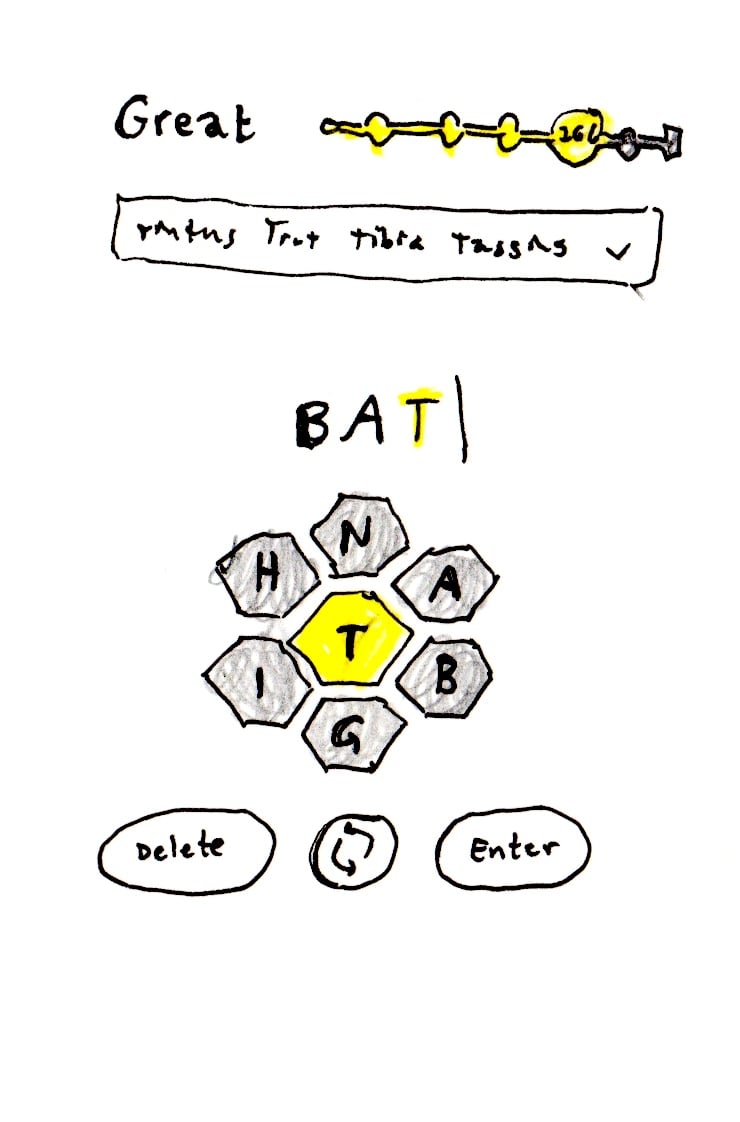
You mentioned that you read Middlemarch last year. How did you squeeze that in? Because that’s a commitment.
Middlemarch was wonderful. I loved it. When you take seven months off work, you can have time to relax, and my reading went crazy. I couldn’t get enough books, because I wasn’t reading anything online. I stopped cold turkey, basically. People would send me links, like, “Here’s an interesting New Yorker article,” and I’m like, nope. Not even news. Not gonna read it. I’m gonna read about Dorothea and Casaubon.
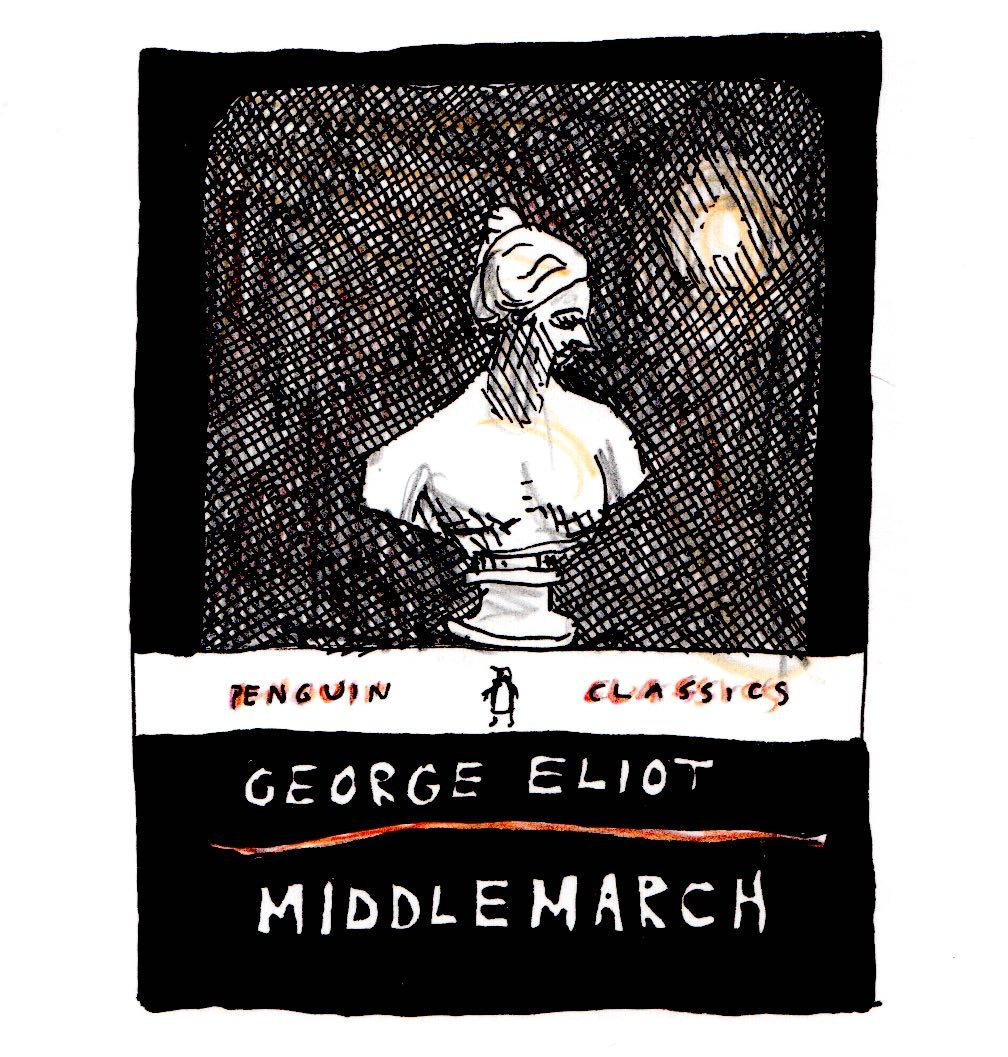
What were other highlights, book-wise, from that time?
Middlemarch was definitely the highlight. I don’t know if I’ll ever have another sabbatical like that. It was probably a once-in-a-lifetime thing.
Right now I’m listening to a good audiobook, though: Blood in the Machine, by Brian Merchant. It’s about the Luddites.
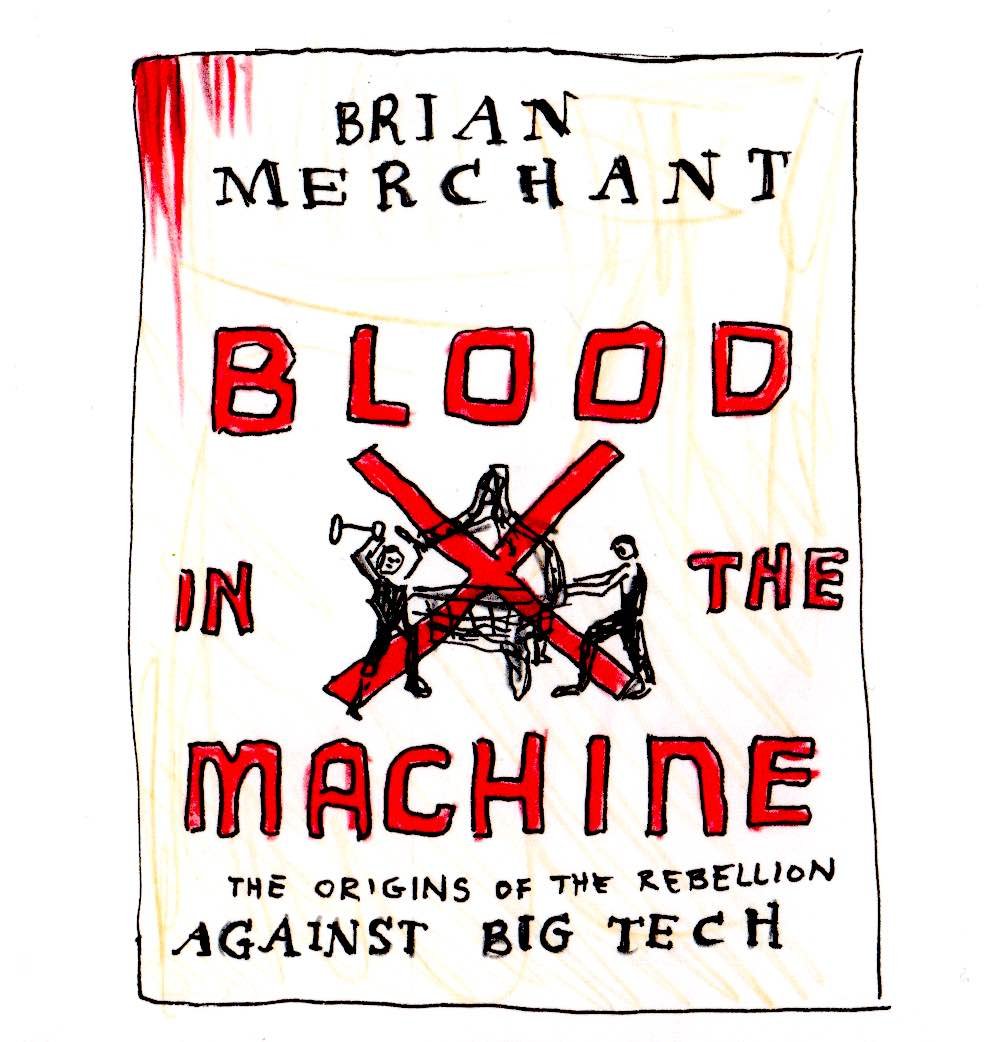
It was painted as an anti-technology movement in the early 19th century, but the book recontextualizes it as a labor movement. Rich factory owners were introducing new technologies, and people were getting laid off. Workers were angry and would go into the factories to smash machines, but they would only smash the ones that were, like, driving people out of work. The machines that actually helped the laborers do their jobs, those were kept.
And he relates it to what’s going on these days with AI and the current anti-tech movement. I’m enjoying it.
How did you hear about it?
I’d seen it on some “best of” lists at the end of 2023, and then Casey Johnston recommended it on Blue Sky. She was like “this book is great,” and so I was like, Okay, that’s good enough for me.
Do you listen to things most of the time while you’re driving?
Maybe half the time. I also use driving time to think. Like if there’s some work thing I need to think over, I’ll put on music without words, and just, you know, spin the wheels.
But when I don’t feel like doing that, I’ll listen to an audiobook or podcast.
What kinds of music do you listen to?
The music thing is embarrassing because I don’t listen to a lot of, like, new music. André 3000’s flute album is maybe the newest thing I’ve listened to recently.
I can’t write when the music has lyrics, so when I’m working I play a lot of classical and soundtracks. Also videos on YouTube. One of my favorites is just basically an ice breaker idling in the Arctic during a storm.
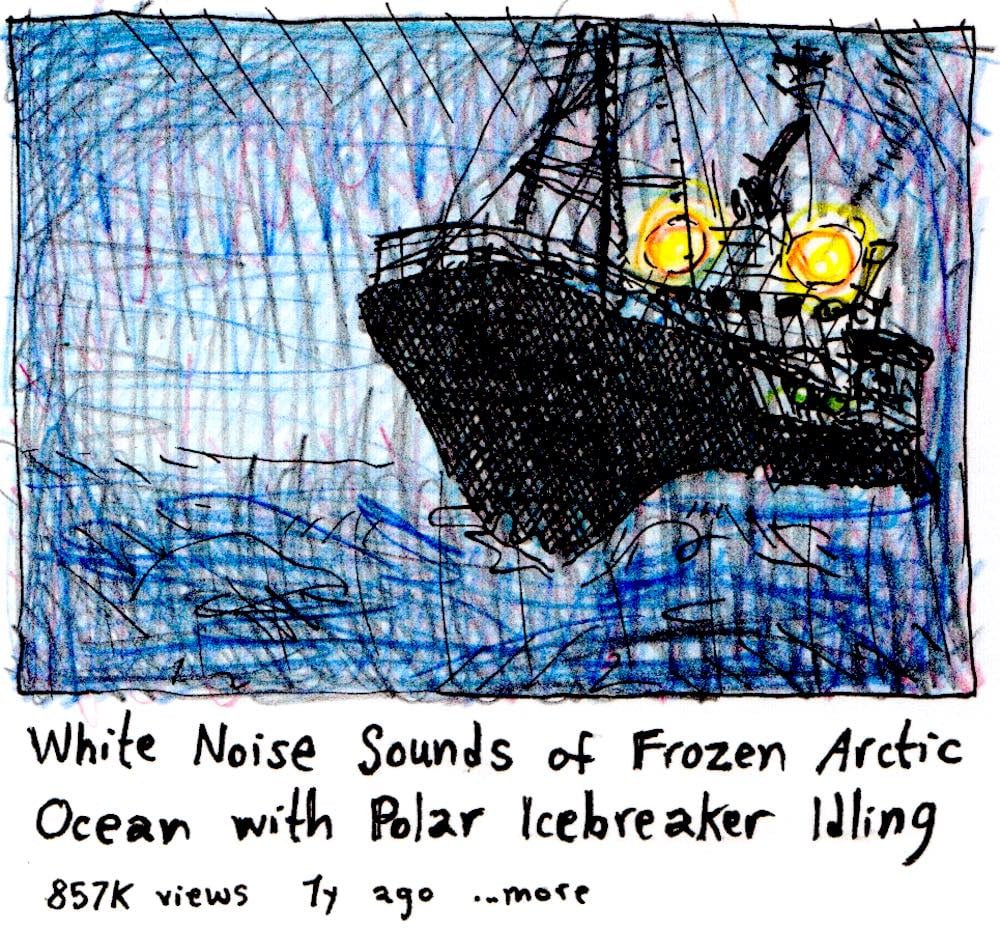
I also listen to a lot of electronic music, at varying levels of, uh, what would be considered good? And when I’m programming or designing, I listen to a lot of upbeat house, club, and techno.
Anything you’ve seen recently that just wasn’t for you?
Rebel Moon on Netflix was bad. Not even “not for me.” Just objectively terrible.
And something you loved?
The Zone of Interest. I saw it a few weeks ago and have thinking about it ever since, especially the sound design.
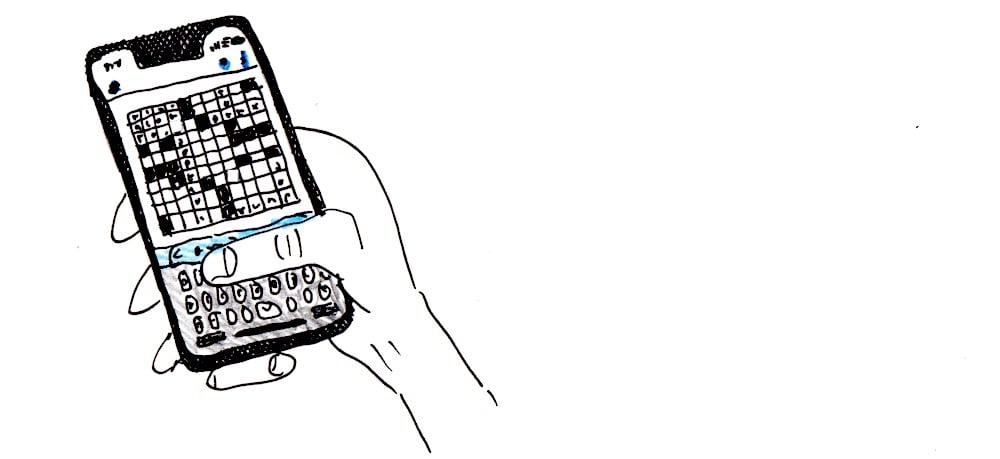
I love playing the NYT crossword, but I only recently discovered Rex Parker Does the NY Times Crossword Puzzle, a blog of daily puzzle reviews, full of spirit and bile. And although like Jason I’m a little put off by how negative the reviews can be — I don’t want the thing I’m so proud to have just finished be considered “toothless” or “dead in the water”!! — they’re also funny. So maybe it’s fine, or actually better. For instance, from his review of Tuesday’s puzzle:
The [theme answers] seemed listless (except [REDACTED], which just seemed bizarre), and the overall fill ran weak (and heavily, drearily name-y; more on that below), and then [REDACTED], ugh, I would’ve shut my computer right there if I weren’t contractually obligated to go on. […] As for the rest of the puzzle, it was gunked up with names to an unusual, and possibly dangerous degree.
Lol. Meanwhile, there’s also XWordInfo (NY Times crossword “answers and insights” — useful for puzzle constructors, too), Diary of a Crossword Fiend (“reviewing the best crosswords in print and on the web”), and Daily Crossword Links (“all the day’s crosswords in one place”), as well as the NY Times’ own Daily Wordplay Column, an adjoining column riffing on each day’s puzzle, often with a mini-interview of that day’s puzzle constructor. (From today’s constructor: “This puzzle was partly inspired by my children, who love to put on one red oven mitt and run around the kitchen exclaiming, ‘Look, I’m an (18A)!’”) The comments section here is also a goldmine for community-minded puzzlers. What else is out there?
But really the main thing to do after finishing the puzzle is to open the Spelling Bee back up… Am I right???
Not to be outdone by the recent New Yorker piece on cheating in bridge, FiveThirtyEight has written about allegations of plagiarism by a prominent crossword puzzle editor. Much like in the pro bridge case, an online repository of games has led to people uncovering inconsistencies in dozens of Timothy Parker’s crossword puzzles that would not have been otherwise noticed.
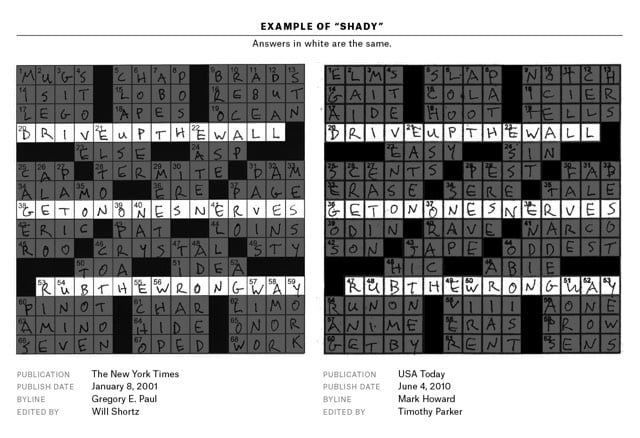
There are two types of Parker’s puzzle duplications that the database has laid bare: what I’m calling the “shady” and the “shoddy.” The shady are puzzles that appeared in Universal or USA Today with themes and theme answers identical to puzzles published earlier and in separate, unrelated publications, most often The New York Times and occasionally the Los Angeles Times and Chicago Tribune. In every such case I saw - roughly 100 cases - the theme answers were in identical locations within the grid, and in many cases, the later puzzle also replicated the earlier puzzle’s grid and some of its clues.
(via waxy)
No one can solve this. Not Ken Jennings. Not Marilyn vos Savant. Not Alan Turing. Not Ada Lovelace. Not Watson. Not even Richard Feynman. (Ok, maybe Feynman.)
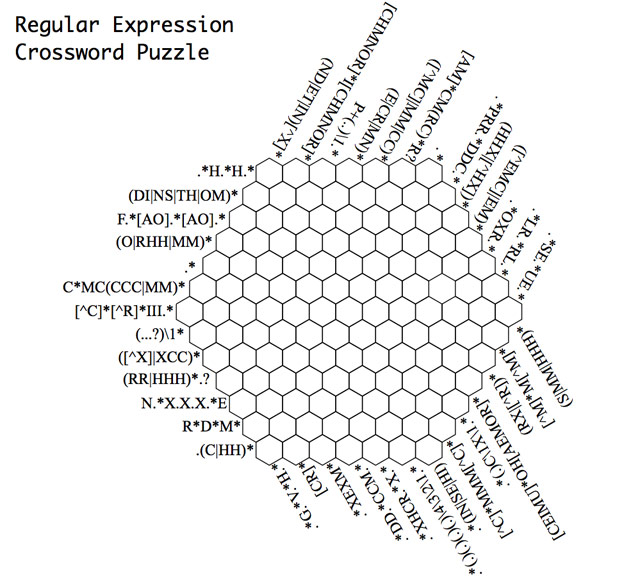
(via @lhl)
Update: Here’s the answer to the puzzle, presumably by some time traveling super-being from the future. (via @grimmelm)
This is a surprisingly helpful activity for learning about regular expressions. (via @bdeskin)
Long-time crossword puzzle builder John Graham (aka Araucaria) is dying of esophageal cancer and used a crossword puzzle in the Guardian to reveal the news.
Above cryptic crossword No 25,842 sat a set of special instructions: “Araucaria,” it said, “has 18 down of the 19, which is being treated with 13 15”.
Those who solved the puzzle found the answer to 18 was cancer, to 19 oesophagus, and to 13 15 palliative care. The solutions to some of the other clues were: Macmillan, nurse, stent, endoscopy, and sunset.
Speaking from his home in Cambridgeshire, Araucaria said this particular puzzle had not taken him very long, adding that a crossword had seemed the most fitting way to make the announcement.
“It seemed the natural thing to do somehow,” he said. “It just seemed right.”
(via @daveg)
Over on Quartz, Zach Seward takes a neat look at the 14 year rise and fall of AOL through the zeitgeist-y lens of clues for that short, double vowel word being used in the New York Times crossword.
Mar. 29, 1998: Netcom competitor
Jun. 17, 1998: Chat room inits.
Oct. 4, 1998: Part of some E-mail addresses
(via ★faketv)
On the day before the 1996 US presidential election, the NY Times ran a crossword puzzle that correctly predicted the winner.
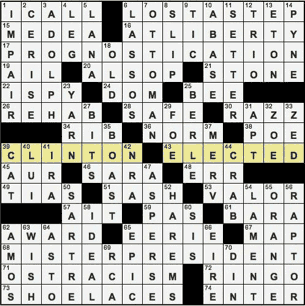
Click through to see how they did it.
Dan Feyer can solve a NY Times crossword puzzle in as little as a minute and twenty-two seconds.
His brain is jammed with factoids: the names of songs and rock bands that lived and died before he was born, far-flung rivers and capitals, foreign sports equipment, dead astronomers, fallen monarchs, extinct cars, old movies, heroes of mythology, dusty novelists and the myriad other bevoweled wraiths that haunt the twisted minds of crossword constructors. He has learned their wily tricks and traps, like using “number” in a clue that most people would take to mean “numeral” but that really meant “more numb.”
The article includes a sped-up video of Feyer solving the notoriously difficult Saturday NY Times puzzle in under six minutes.
Stay Connected